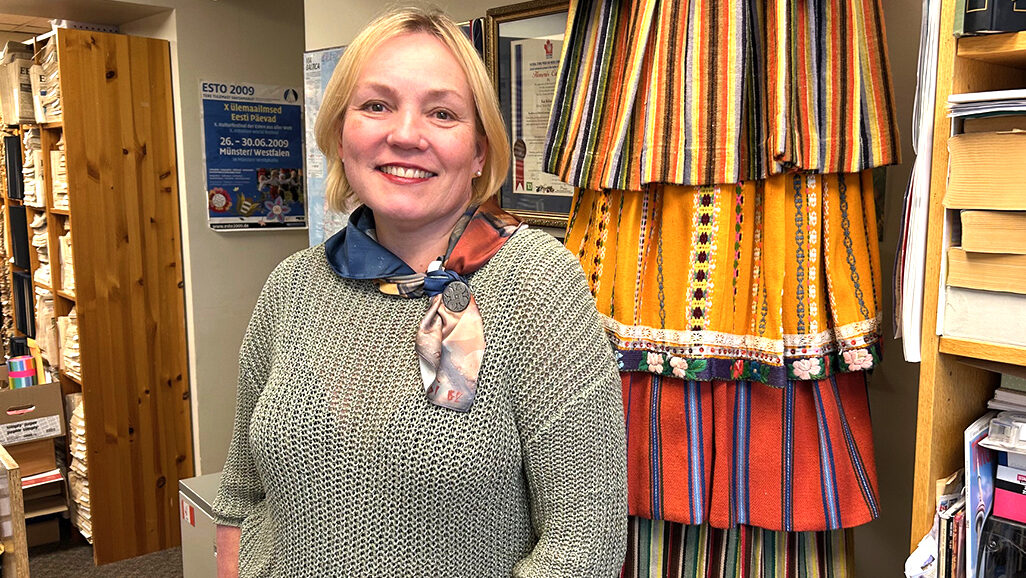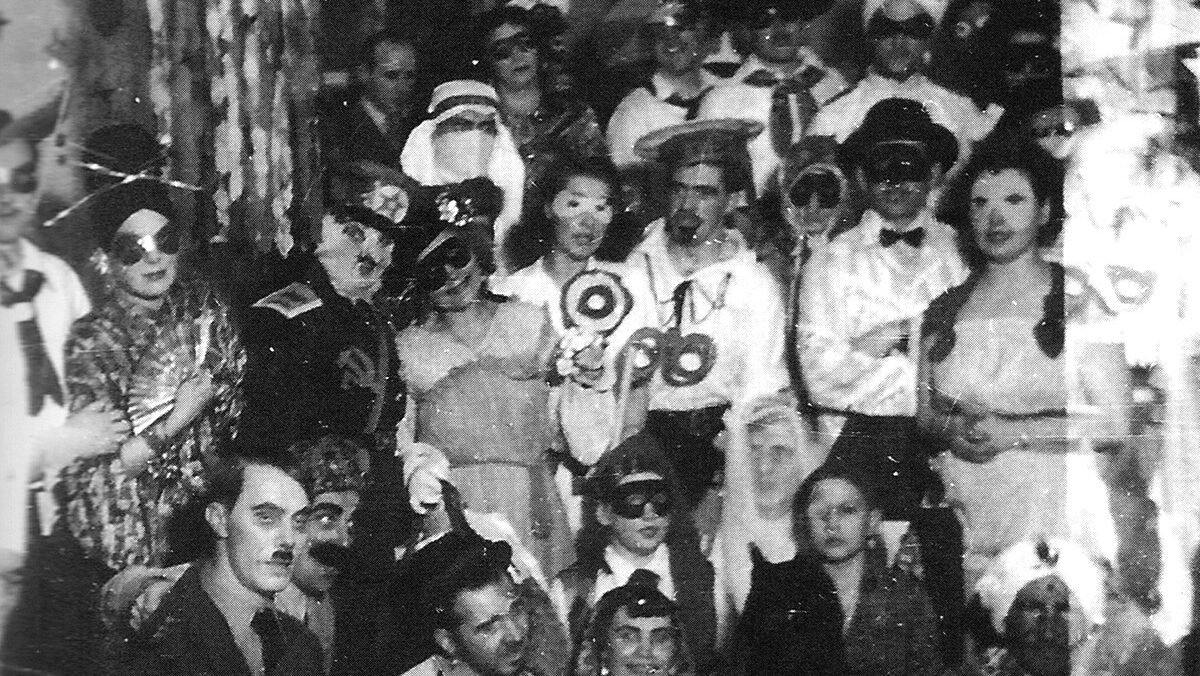Eesti Elu (EE): Would it be fair to describe you as an ordinary bloke with an uncanny aptitude for languages?
Eric Dickens (ED): I suppose so. I was brought up in England by a Dutch mother and English father. With that, I was exposed to a second language in early childhood. After having French, Latin, and German at school, I acquired Swedish, Polish and Estonian as an adult.
I am not interested in clocking up languages. I wish to savour literature. The Google Translate tool is still not sufficiently sophisticated, even for translating newspaper articles. For my purposes, I don't actually need verbal facility in other languages.
In 1969, I developed an interest in Finnish. That was eventually overtaken by Estonian. I'm currently making efforts to learn it more thoroughly now. With no university programme for Finnish, at the time, I shifted my attention to Swedish.
EE: What is it about the Estonian language that appealed to you?
ED: I saw a shelf of Estonian books in the Akateeminen Kirjakauppa (Academic Bookshop) in Helsinki, in the late 1970s, and thought it would be interesting to examine this “funny Finnish” more closely. Previously, I spent a year in Poland, learning Polish, so I knew what the Soviet Bloc was like; that Estonia was “locked away” behind the Iron Curtain enhanced my curiosity.
EE: How difficult was it to master Estonian, in comparison to Dutch or Polish?
ED: My childhood languages, Dutch and English, were absorbed automaticaly. It's the languages, acquired as an adult, that present challenges. Polish is difficult, even more so than Russian. In Estonian and Finnish, it's the inflection of nouns that makes them very difficult for those only familiar with Indo-European languages.
I began to examine the Estonian language seriously in the 1980s. I even studied with Raimo and Virve Raag at Uppsala University. Raimo was helpful beyond the call of duty.
In 1989, two Dutchmen, a Hungarian-German woman and myself joined the Soviet-Estonian writers' group, Wellesto, on a week-long trip to Saaremaa. We were inspected, in a most desultory manner by a Soviet soldier, as we entered what was then a military zone. Our tough and efficient trip leader, Sirje Kiin, got us through. That trip was an inspiration.
My verbal fluency is hardly exemplary, having lived in Estonia for only a year. Yet, I've acquired a reading knowledge, adequate for translation. Estonia's literature, more or less invisible in the West, was a motivator. Estonian is not as hard to learn as Finnish; but, by no means, easy.
EE: Is there something about our culture that's particularly appealing?
ED: The split in the culture, for half a century, makes it both complex and fascinating. The Eesti Kirjanike Kooperatiiv publishing house in Lund, Sweden, became the bedrock of Estonia's literary culture; first, among the väliseestlased and later, in Estonia itself.
The worst thing that Estonians do is promote culture as something quaint – consisting of pretty girls, in Hanseatic costume, selling candied almonds in Tallinn's old town – while ignoring literature and history.
The European Year of Culture of 2011, in Tallinn, was an anodyne affair. Music and fine art are more accessable than literature, of course, as there's no need for translation; nonetheless, literature's low profile, there, was unforgivable. Bookshops in Tallinn displayed my translations, but the organisers of the Year of Culture largely ignored the tourist who might read a book. I sensed that the organisers caught the disease we see on the other side of “the Gulf of Leningrad”: finlandisation – be quiet and stay out of sight!
EE: At the cultural level, to what extent is contemporary Estonia living with a hangover from the Soviet period?
ED: Estonian literature has been hit by a malaise. Young people do not want to examine a Soviet occupation they can't remember. Nonetheless, they should be aware of threats from abroad; not only military; also, cultural. Literature can communicate this to a generation of political illiterates. Alas, much of what's written, at the moment, borders on the trivial.
Some Estonian writers are trying to emulate zany trends that arose in the West when Estonia was still occupied. I suspect that there's also an attempt, by a few in the cultural elite, to emasculate Estonia's history and literature. I can't say for certain. Yet, it cannot be denied that, during the Soviet occupation, many “cultural workers” were artistically and morally damaged. Some have died of old age; others never recovered. A few, like the wily Jaan Kross, managed to play the system; he made small compromises for huge gains.
What was once “written for the desk-drawer” – hidden from censors – must now be published to depict Soviet life.
EE: In translating Jaan Kross, Mati Unt, Doris Kareva and Friedebert Tuglas, we see some of the best of Estonian literature. Were these your selections, or, were they suggested by publishers?
ED: I gravitate to prose, rather than poetry, so I haven't translated much poetry. Doris Kareva, Juhan Viiding, Elo Viiding, Mats Traat, Bernard Kangro, Artur Alliksaar, among others, are poets who certainly should appear in translation. It's prose, however, that interests me most; novels and short-stories.
My first book-length translation was, indeed, chosen for me in about 1992. Jaan Kross looked like he might win the Nobel Prize; so publishers, including Harvill in London, scrambled to have something ready, should he do so.
It was mooted that “Kolme katku vahel” should be translated, and some stories from “Silmade avamise päev.” I translated these under the title of “The Conspiracy and Other Stories.” Publication was put “on hold,” pending news about the Nobel.
Kross didn't win and plans to translate “Kolme katku vahel” were dumped. It's never appeared in English, although I believe that Merike Beecher-Lepasaar, in the USA, has translated all four volumes. I've asked about this in Estonia and received no answer. The people who are supposed to be promoting translation haven't heard of her! The amount of Estonian literature that has appeared in English – compared to Finnish, Swedish, Latvian, or German – is embarrassingly small.
Apart from the initial novel, by Kross, what I've translated has been my choice. This is important; books, suggested by kodueestlased, would not necessarily be well-received elsewhere.
I selected Kross' novel, Paigallend, that ultimately appeared as “Treading Air.” Kross personally approved the English title. It appeared in 2003 and, alas, never reprinted.
Things took a positive turn after that. At my suggestion, The Dalkey Archive Press approved Mati Unt's “Öös on asju.” I had wanted to translate that book for years and Dalkey, in Illinois, finally agreed. After that Ants Eert, who lives in Hawaii, translated Unt's “Doonori meelespea” and I translated “Brecht ilmub öösel.” Now, three novels by Unt have appeared in English.
Friedebert Tuglas is another author I'm proud to have translated. It was the Central European University Press, in Budapest, which accepted my suggestions for Tuglas' stories. I deliberately chose stories not appeared previously in English in Soviet anthologies. So, I translated “Androgeeni päev” and my favourite Tuglas story, “Kuldne rõngas”. The title of the book is, “The Poet and the Idiot and Other Stories”.
My most recent translation of Jaan Kross, “Sailing Against the Wind” (Vastutuulelaev), appeared this year. As with many of his novels, it's based on a living person; in this case, Bernhard Schmidt from Naissaar, who lost a hand as a teenager, but went on to become a telescopic lens polisher and, ultimately, a telescope designer. The Traducta translation fund, part of Kultuurkapital, rejected my application for funding. I hope they'll reconsider in future.
My anthology, The Dedalus Book of Estonian Literature, appeared last year and was favourably reviewed in Eesti Elu. A novel by Toomas Vint, “An Unending Landscape” (Lõppematu maastik) will appear shortly from The Dalkey Archive Press.
I may have already translated more Estonian literature than anyone else, but I don't want to stop yet. I hope that Tammsaare's, “Tõde ja õigus”, appears in English one day. The first volume has been translated by the late Alan Trei and his wife Inna Feldbach, but not yet published. I planned to do the second volume; the rest was farmed out to a British and an Australian translator. The project came to a halt, however, due to a crisis at the British publishing house which would have published it.
EE: What are your current intentions? Is there something that you would dearly love to bring to an English readership?
ED: I'm keen to translate more novels by Jaan Kross. There are some that would appeal to an English readership: “Väljakaevamised”, “Wikmani poisid” and “Mesmeri ring”. Of Kross' historical novels, “Rakvere romaan” might be good. The works of Jaan Kross and – not least – the story of the occupations should be exposed to the wider world.
While Heino Kiik's novels might not resonate in English, his copious diaries give insight into the Communist Party's constraints on writing. Mats Traat's “Pommeri aed” merits exposure. Former Party member, Enn Vetemaa, wrote very readable novels. Surely, his recent one about Gustav Naan (Gustav Naani hiilgus ja viletsus; 2011) merits – at least – an excerpt somewhere. Elo Viiding's sometimes quite zany writing is worthwhile. My translation of her story, “Foreign Women”, appeared in the annual, “Best European Fiction 2010”.
Enn Nõu has just completed a trilogy about the Soviet occupation. I've not read it, yet, but the subject interests me. The prequel is a historical novel, “Mõtusekuke viimne kogupauk,” which deals with the Estonian settlement at Priamursk, near Vladivostok. It's set during the War of Independence and it's part fact, part fantasy.
I have a draft translation of Karl Ristikivi's “Hingede öö” that's looking for a publisher.
So, I intend to continue translating Estonia's literature into English – the bridge to the wider world.
Eric Dickens, in conversation with Andres Gutman, July 2012




